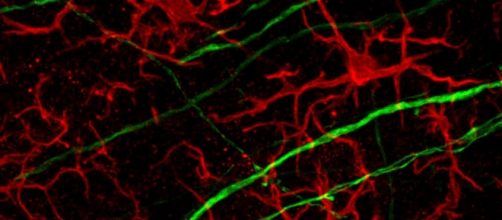Researchers from Georgia State University have found that Immune Cells in female brains are more active in regions that respond to pain, unlike men whose immune cells are less active. The study was published in the journal of neuroscience under the title ''Differences in Microglia Activity within the Periaqueductal Gray of the Rat: A Potential Mechanism Driving the Dimorphic Effects of Morphine.''
Pain in the brain
The brain has many agents that work on protecting it, one of these factors is a kind of cells called microglia, these cells are responsible mainly for immunity.
Microglia make about 10 to 15 percent of the cells in the brain. Generally, women are more sensitive than men when it comes to pain, they experience chronic and inflammatory pain more frequently, and at the same time pain medication is less effective in women than men.
What the researchers did was that they blocked these immune cells in females to see how would that affect their response to pain medication, and they actually found that pain medications worked much better with females after blocking the immune cells, indicating a major role that microglia play in pain sensitivity in females.
The experiment
Microglia are the protective factor that protects the brain from any virus or harmful bacteria, they move across the brain looking for any harmful body that could be around.
Painkillers like 'morphine'' are treated like a virus in the brain, when microglia sense morphine in the brain they target and kill it, hindering its function as a painkiller.
What the researchers did in the experiment is that they gave male and female rats a chemical that inhibits the activation of microglia, and they found that female rats responded much better to painkillers. Female brains have more active microglia than men, which treat painkillers as intruders and kill them, that is why painkillers are not that effective in women.
"The results of the study have important implications for the treatment of pain, and suggests that microglia may be an important drug target to improve opioid pain relief in women," said Dr. Anne Murphy.

